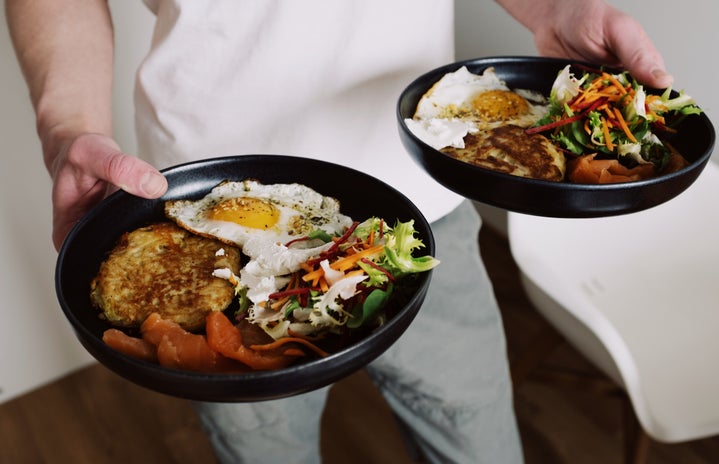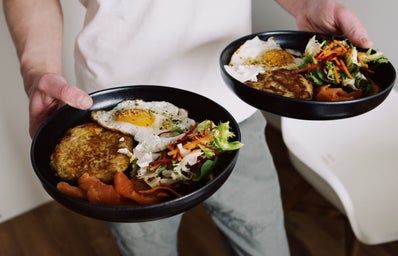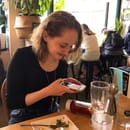*TW: eating disorders, body image, bullying*
Growing up, I had a strained relationship with my body. I was always a little chunky as a kid, which my family never let me forget. The constant “eat this, not that,” and “you don’t need seconds” became my conscience before my own voice. My childhood began with being called “fat;” I was set up to fail from the very beginning. From the point I began being called these names, I associated being fat with being unworthy, unhappy, and a failure. By age 12, I found myself diving into sensitive online forums such as Pro Ana Tumblr. Although I knew disordered eating was deadly, I was curious. But, as they say, curiosity killed the cat.
Fast forward to my teenage years, these feelings hardly changed. I grappled with disordered thoughts and feelings of unworthiness. Although my family grew to understand the danger of their words, teenage girls picked up right where my family had left off. My group of friends at the time consisted of three girls—blonde, skinny, tan, and pretty. I, contrasting the girls, was chubby, brunette (dyed, of course), pale, and just somewhat pretty. Since I didn’t fit the stereotype of the group, I was always the victim of harsh “jokes” that were anything but jokes. Constantly being told I was too pale, that I ate too much, and that I didn’t attract as many boys as them was just the tip of the iceberg for this group. However, once I was put on birth control, I started to lose weight. For anyone who has not used birth control, many times it makes you experience a loss of appetite and become extremely nauseous and. During this time, I lost about 10 lbs. People kept telling me how great I looked, which made me regain the validation I had lost when I was a child. After losing even more weight, dying my hair blonde, and tanning, I finally felt pretty enough to be accepted.
Once I got to college, life became more stressful, as it does. I started eating less just because I was busy, which started to trigger me. As it does, my disorder came crawling back into my bed, coddling and protecting me from all of the stressors I was experiencing. The comfort of it is far too familiar and way too easy to succumb to. Disorders are like an old friend. You forget about them for a while, but they always come back, and you always remember the sense of serenity and familiarity when they return. Relapsing is hard, but I always bounce back, or so I thought. I began going to the gym twice a day to run until I couldn’t breathe. Which if you didn’t know, is extremely dangerous when you are not getting enough nutrients. COVID-19 hit, which caused me to spiral further. Although I didn’t have access to a gym, I worked out every single day at home. I lost more weight than I ever have, but I was miserable. Plus, as always, I gained it all back (because the weight loss from this illness is never sustainable). This relapse continued throughout the summer and into the fall.
I never fully understood the detriments of this disorder until recently. I always thought, I could never die, I’m not skinny enough. First of all, yes I was. Second, no matter the weight, gender, or age, anybody can die from malnutrition. Since I was skinny but not “anorexia skinny,” nobody cared, or even noticed. Once the heart palpitations and fainting became too much to handle, I knew I was going to die if I didn’t try to help myself. I just didn’t know how to. Nobody knew I was sick, even to this day nobody really knows (well, now they do). I began going to the gym to gain muscle rather than focusing only on cardio. So far, I’ve been gaining muscle, but, as we know, muscle weighs more than fat. Although I look thin, the number on the scale is climbing. This is terrifying to see, but I know I need it. My heart can’t pump blood to my body if it’s failing. I can’t do my homework if my brain can’t think. Anyone who has struggled with disordered eating understands how the disordered thoughts never really go away, but remembering that I can and will die if I don’t push definitely helps me throughout my journey. I don’t want to die. Life is to be lived, but certainly not like this. This isn’t living, going through the motions as a lifeless zombie with no energy to socialize, do work, or live. I want to actually live. I’ll never stop trying to get better so that I can do so. As for you, whoever is reading this, should try to do the same. I know, eating is hard and complex and scary. It may seem as though you’ll never be able to eat normally again. I’m here to tell you that first of all, there is no “normal” when it comes to food. Food is relative and individual. Second, the only commonality between each person regarding food is that we all use it for fuel and need it to carry out bodily functions. Just because Kendall Jenner drinks kale smoothies and cold pressed juices doesn’t mean you have to. Opposingly, just because your friends want to go out for pizza and ice cream does not mean you’re obligated to tag along if you don’t want that food. It’s so easy to either eat too healthy or binge like crazy when trying to recover. The most important part is to eat intuitively, rather than emotionally or not at all. You’re craving a cheeseburger and fries with a milkshake? You should absolutely have it. Then tomorrow you crave a salad? Make one! It’s important to listen to your body and understand why you are craving these foods. If you decide to ignore these cravings, chances are you will binge on them down the road, and then some. There are no “bad” or “cheat” foods. Food is fuel and your body needs it. You deserve to feel alive and you deserve to enjoy all types of food, guilt free. And if you’re still hungry, regardless of what you ate, you should always have seconds.



